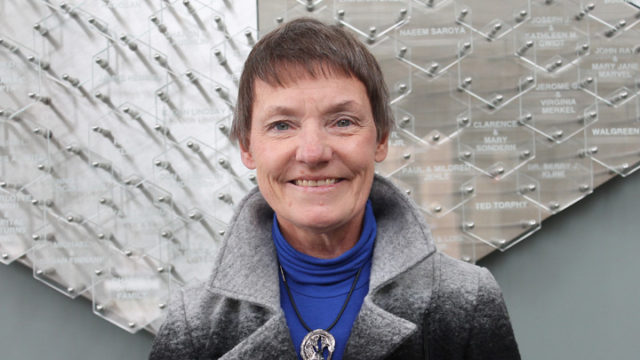
Christine Sorkness, Distinguished Professor of Pharmacy and Medicine (CHS) and ICTR Senior Associate Executive Director, is the senior author of a study to develop a new approach to diversifying the biomedical workforce through a novel program addressing career challenges for researchers from underrepresented backgrounds engaged in health equity research.
Published in the current edition of the Journal of Clinical and Translational Science (JCTS), the “The Health Equity Leadership Institute (HELI): Developing workforce capacity for health disparities research” concluded that HELI’s evidence-based curriculum can support the development of a diverse workforce for health equity research.
The research methodology involved the development and evaluation of HELI—an intensive week-long research and career-development institute created by faculty from the University of Maryland at College Park and the University of Wisconsin-Madison. The goal of HELI is to increase the number of underrepresented scholars who can sustain their ongoing commitment to health equity research. From 2010-2016, HELI brought 145 diverse scholars together to engage with each other and learn from supportive faculty. Overall, the scholar feedback was highly positive. Eighty-five percent of HELI scholars remain in academic positions. In the first three cohorts, 73% of HELI participants have been promoted and 23% have secured independent federal funding. For those institutions interested in implementing such an institute to develop and support underrepresented early stage investigators, a resource toolbox is available.
Published online six times a year, JTCS is the official scholarly publication of the Association for Clinical and Translational Science. Its purpose is to provide a forum for the rapid communication of topics of interest and relevance to the large and diverse community of clinical and translational scientists with the goal of improving the efficiency with which health needs inform research and new diagnostics, therapies, and preventive measures reach the public.
As ICTR Senior Associate Executive Director, Sorkness oversees the Community-Academic Partnerships core, and the Pilot Grants program. She helps direct the ICTR Collaborative Center for Health Equity. She has a special interest in health disparities in asthma, in which she has conducted both cost-effectiveness and comparative effectiveness trials.
Dr. Sorkness has a clinical practice in the Anticoagulation Clinic at the VA Hospital-Madison, and also is affiliated with the UW Allergy, Pulmonary, and Critical Care Division, with more than 20 years of NHLBI-funding as either a co-investigator or co-principal investigator. A long-standing member of the UW Health Sciences IRB, she has also served on several NHLBI-appointed Data and Safety Monitoring Boards for large multi-center national trials.
She holds professorships in both the School of Pharmacy and the School of Medicine and Public Health. Having guided the Doctor of Pharmacy curriculum through the UW academic approval process, she had the expertise to manage approvals for the ICTR graduate programs in clinical investigation. She serves on the ICTR Faculty Governance Committee and teaches two graduate courses, background for her oversight of the ICTR Research Education and Career Development core as well.